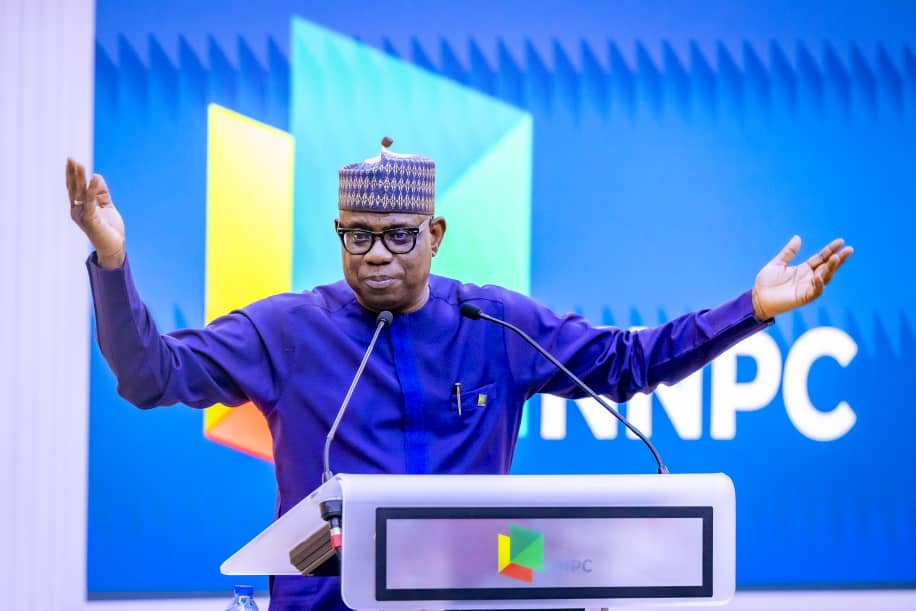The Nigerian National Petroleum Company Limited has announced a new target of June 2026 to complete the selection of technical partners for the country’s three state-owned refineries. This marks another important step in Nigeria’s long search for a workable solution to the failed rehabilitation of its Port Harcourt, Warri, and Kaduna refineries, which have suffered decades of underinvestment and declining technical capacity.
The Group Chief Executive Officer of NNPCL, Bayo Ojulari, revealed the new timeline during a question-and-answer session at a press briefing held on Monday in Abuja. The event also highlighted the company’s Profit After Tax of N5.4 trillion for the 2024 financial year, which is the strongest result in the history of the national oil company. He said the new strategy reflects a more commercial approach under the Companies and Allied Matters Act and the Petroleum Industry Act.
Ojulari admitted that Nigeria’s refineries remain in very poor condition, even with the ongoing rehabilitation projects. He said the Port Harcourt, Warri, and Kaduna plants are “well below international standards,” and their products cannot compete with the high-quality fuel from the privately owned Dangote Refinery. He explained that the outcome is linked to many years of poor maintenance, weak governance systems, and the loss of technical expertise across the local refining industry.
According to him, the new plan is to work only with private entities that already own and operate successful refineries. He stressed that NNPCL will not enter partnerships based on promises but on verifiable track records and proven refining experience. Ojulari said the company is partnering as a commercial entity and not as a government agency.
He noted that the Dangote Refinery shows how much refining capacity has shifted outside Nigeria, since many of the experts running the facility are foreign professionals. He said Nigeria has “lost capability over time” and needs to rebuild the technical skills required to operate refineries at global standards. The GCEO explained that the private partners NNPCL is targeting will bring in technical resources, expertise, and operational leadership, while NNPCL will complement with its own capacity. He said the private partners will lead operations so that the refinery upgrades and day-to-day activities are handled by people already active in the global oil and gas market.
Ojulari added that NNPCL may redesign the refineries into hybrid plants to meet global product specifications. He warned that if the state-owned plants are rehabilitated strictly based on their original designs, the output will still fall below international standards and also below the product quality from the Dangote Refinery. He explained that a hybrid model will allow the plants to produce fuels that meet Euro-V levels and other global benchmarks for clean energy and competitiveness.
He said NNPCL will announce firm completion dates only after the hybridisation and redesign plans are ready. He promised that by the middle of next year, the new partnerships, technical arrangements, and commercial contracts will be fully defined. According to him, this will also give the company a clearer roadmap toward completing the refinery projects.
The delay in achieving full refinery rehabilitation has continued for years despite major investments. Nigeria’s three state-owned refineries, which have a combined installed capacity of 445,000 barrels per day, have been largely inactive for more than a decade. Billions of naira have been spent on turnaround maintenance since the early 2000s, yet no plant has returned to steady production. The Port Harcourt refinery is undergoing a $1.5 billion rehabilitation, Warri is being upgraded under a joint project with Daewoo Engineering, while Kaduna refinery still needs extensive redesign and new configurations to process heavier crude and meet modern standards.
Ojulari also spoke about Nigeria’s crude oil production, saying the country is gradually increasing output after facing years of decline. He said Nigeria produced around 1.5 million barrels per day last year, and the target for this year is 1.7 million barrels per day. He added that the country hopes to reach 1.8 million barrels per day next year, and two million barrels per day by 2027. He said improved security, stronger Joint Ventures financing, and new upstream investments are helping Nigeria rebuild confidence in the oil and gas sector.
He said NNPCL’s strong financial results, including the N5.4 trillion profit declared for 2024, show improved operational performance. He added that 2025 will likely be even better based on the company’s internal fundamentals, excluding foreign exchange gains or global price movements.
Ojulari reminded Nigerians that NNPCL is now a limited liability company under CAMA with the freedom to enter commercial agreements like any private corporation. He said the company is improving relationships with partners and strengthening investor confidence. He stated that happy partners become “ambassadors,” while unhappy partners can damage a company’s reputation.
He praised the over 6,000 direct and 6,000 indirect staff of NNPCL for contributing to the company’s new direction. According to him, the company is investing heavily in new technical training to prepare for modern energy technologies and future industry challenges. He said the organisation is empowering its workers by providing tools and training that will help increase performance and support long-term growth.
